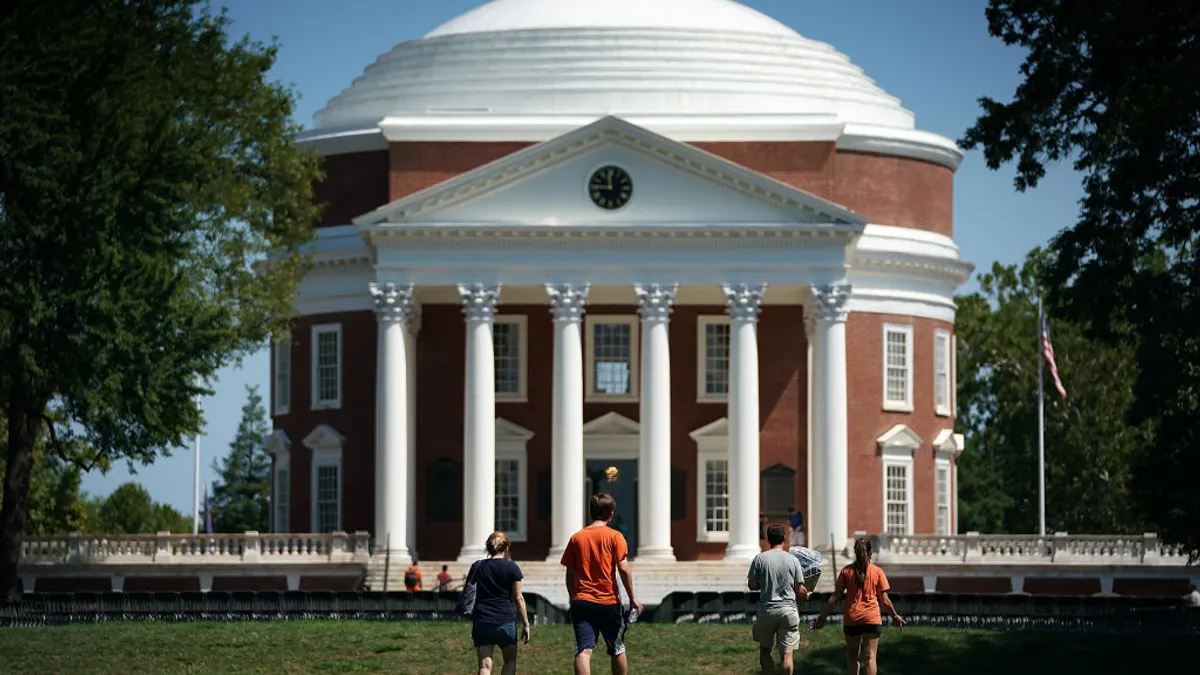Dive Brief:
- College administrators are increasingly adding well-being, or learned happiness, to the list of things that make their institutions valuable to students, in addition to factors such as employment success for graduates.
- A Purdue University/Gallup study this year found that college graduates are more likely to have high levels of well-being if they had a professor who cared, made them excited to learn, and encouraged them to follow their dreams — and only 14% of the graduates surveyed had that support.
- A Gallup poll in 2012 found that American workers without college degrees were more likely to be enthusiastic about their work than college graduates, USA Today reported.
Dive Insight:
Sure, well-being is important, but probably the best way a college can boost the happiness quotient of its graduates is to help them land great jobs in the lousy job market. The newspaper cites several examples where colleges are taking up the well-being issue: Wake Forest University in North Carolina is launching an initiative to help students with their well-being; Frostburg State University in Maryland plans to assess the hope and well-being of new students this fall; St. Bonaventure University in New York plans to include well-being statistics in its accreditation report; and George Mason University, Purdue University, Ohio State University, and other schools are working with Gallup Education to help promote a greater sense of well-being among their students.








